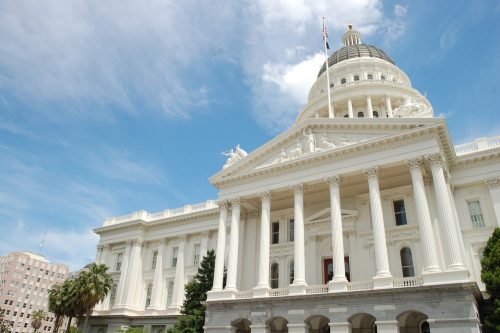
On February 9, 2022, Governor Gavin Newsom signed the California Senate bill, SB 113, modifying the elective tax on pass-through entities (PTE). The benefit of this bill is that it makes adjustments that help taxpayers with the current PTE tax law, encompassing a time period going back from January 1, 2021, through January 1, 2026.
How SB 113 Helps
This senate bill changes California’s elective tax on PTEs. By passing this bill, California follows in the footsteps of other states which have already done the same. It is good news because optional PTE taxes work around the $10k federal cap, which you could previously deduct from your state and local taxes. It helps you with the following:
-Increases your eligibility for the PTE tax if you are an entity with a partnership as a partner, member, or shareholder starting from 2021.
-Alters the definition of a qualified taxpayer to also include LLCs.
-If you are a qualified taxpayer, you can now get a credit for your share of the entity-level tax (effectively lowering your California income tax).
-Gets rid of the PTE tax credit so it can’t be subject to the tentative minimum tax.
-Now includes guaranteed payments as qualified net income subject to the PTE tax.
-Requires that the elective tax credit is applied once tax credits have been paid to other states.
Qualified Entity
If you are a qualified entity, that means you are taxed as a partnership or S corporation. Before this bill, if you were an entity owner as a partnership, you could not choose the PTE election. However, the bill does not change your ability as a qualified entity to pay taxes on the behalf of a partnership owner since they are not considered a qualified taxpayer. But the good news is, the bill does expand qualified taxpayers to include Single Member Limited Liability Companies (SMLLCs) and allows paying for taxes owed by a qualified electing entity. In addition, if you are an SMLLC owner (individual, estate, or trust), you can claim the tax credit on your own California tax return.
Please note that qualified entities and qualified taxpayers have to be doing business in California and also have a California filing requirement. So if you are an entity living outside of and not doing business in California, you will not qualify for the election even if you call California home.
Other Benefits of SB 113
This bill also updates qualified net income inclusions to incorporate guaranteed payments, which the California Franchise Tax Board excluded before. So the sum of any guaranteed payments and shares of income (whether distributive or pro-rata) will now be subjected to a 9.3% qualified net income tax. It only applies to you if you are an owner who has agreed to the PTE election provision. You can not be required to have the entity pay tax on its behalf, so it lowers the entity’s reportable amount of qualified net income. It has the biggest effect on S corporations and all K-1 reportable income, which could create unequal distributions among the owners.
Find out about entity tax allocation, tax credit ordering, net operating loss, and tax credits, as well as how to apply for PTE elections, in this article:
_https://spiegel.cpa/california-expands-passthrough-entity-elective-tax/_
Filing for a PTE Extension
Keep in mind that you will still need to make on-time tax payments so you do not invalidate the PTE election. Even though you file for an extension of time, it just means you will have longer to file the actual return. For the tax years 2022-2025, you will need to make two payments to keep your PTE election eligibility (June 15 of the taxable year and March 15 of your taxable year’s original filing deadline). So, if you are planning to make the annual PTE election for next year’s 2022 tax year, you will want to make the first payment by June 15, 2022, and then your second payment by March 15, 2023.
If you have accounting or tax questions, please reach out to our Corporate Capital Inc. team in Las Vegas, Nevada, at 855-371-0070! Our experienced representatives offer a variety of business management options.


 855-371-0070
855-371-0070